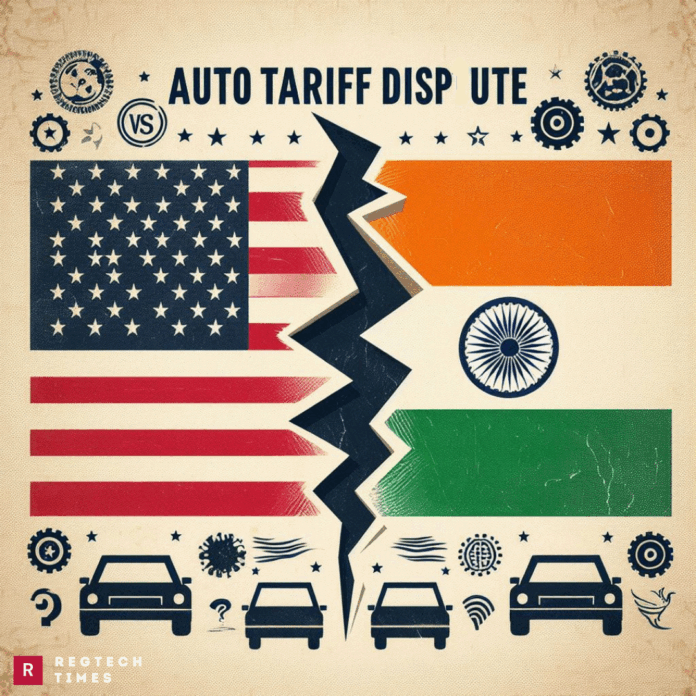A trade conflict is brewing between two big countries — the United States and India. The matter concerns taxes, known as tariffs, that the US has placed on cars and car parts being imported from other countries, including India.
India has knocked on the door of the World Trade Organization (WTO), an international organization that resolves international trade disputes. India asked to have a formal discussion with the US, saying that the high tariffs on its car exports were “safeguard measures.” In trade language, a safeguard measure is when a country suddenly raises tariffs to protect its local industries from harm caused by too many imports.
India believed that the US’s increase in tariffs on passenger vehicles, light trucks, and certain car parts was just that — a safeguard. India wanted to hold official talks with the US under WTO rules to challenge these actions.
But the United States has flatly refused. It told the WTO that the tariffs it put in place are not safeguard measures. In fact, the US said that India has no right to even request consultations under the special WTO rules that deal with such measures. According to the US, its actions have nothing to do with emergencies or protecting its car industry through safeguard clauses.
What Did the US Tell the WTO?
In a formal message sent to the WTO, the US made its position very clear. It said that its tariffs were not made under the rules of the General Agreement on Tariffs and Trade (GATT) 1994, or the WTO’s Agreement on Safeguards. These are the rules that apply when a country uses a safeguard measure.
Therefore, the US contends that India’s request for formal negotiations under those norms is simply invalid because it considers its tariffs to be no protection. The US added that it is willing to talk to India about the issue, but not under the safeguard rules — and this is a key point of disagreement.
WTO Clash as India Hits Back at US Over $7.6 Billion Trade Impact
This is not the first time India and the US have locked horns over trade. India has earlier said it reserves the right to hit back with its own retaliatory tariffs on certain US goods, especially after the US imposed extra tariffs on steel and aluminum products.
In this case, India said the US’s 25% increase in tariffs on passenger vehicles and some auto parts began on March 26, 2025. For auto parts, the increase has been applied from May 3, 2025, and will continue for an unlimited time. India argues that this move affects its exports and looks very much like a safeguard action — and therefore, it should be dealt with under WTO safeguard rules.
Why Is This a Big Deal?
This case matters because of the size of the auto trade and how countries treat each other in global business. According to trade data, the US imported a massive $89 billion worth of auto parts from around the world last year. The largest chunk came from Mexico, which sent auto parts worth $36 billion. Next was China, with $10.1 billion, while India’s share was much smaller — just $2.2 billion.
Even though India‘s share in the US auto market is not very large, the issue is still important. India sees the tariff hike as unfair and damaging to its businesses. It claims that the design and effect of the US tariff policy closely resemble a safeguard, even if the US doesn’t call it that.
Harvard’s China Gambit Backfires—Treasury Considers Crushing Sanctions Case
India’s claim is based not just on the impact but also on the way the measure was introduced — suddenly and for an unlimited period, which is typical of safeguard actions. That’s why it sought help from the WTO under the official process meant to handle such situations.
The US, however, is standing firm. It has made it clear that even though it is open to discussing the matter with India, it will not do so under any rules that suggest it used a safeguard measure. This makes the entire situation more complex and sets the stage for a deeper trade dispute.
In summary, while India is pressing for a formal WTO discussion claiming that the US’s car tariffs hurt its industries unfairly, the US has shut the door on that specific route, saying there’s simply “no basis” for such a claim under global trade rules. This sharp disagreement could make trade relations between the two nations even more tense in the days ahead.
